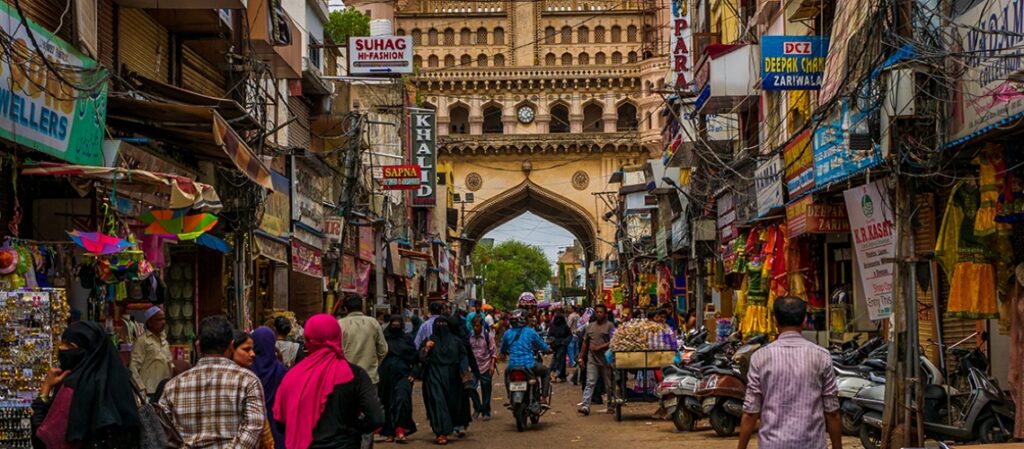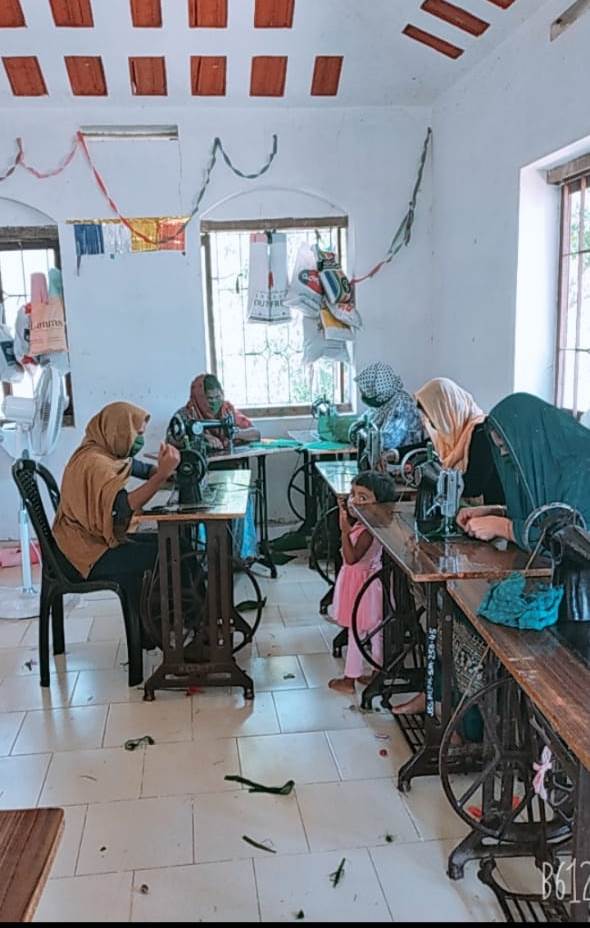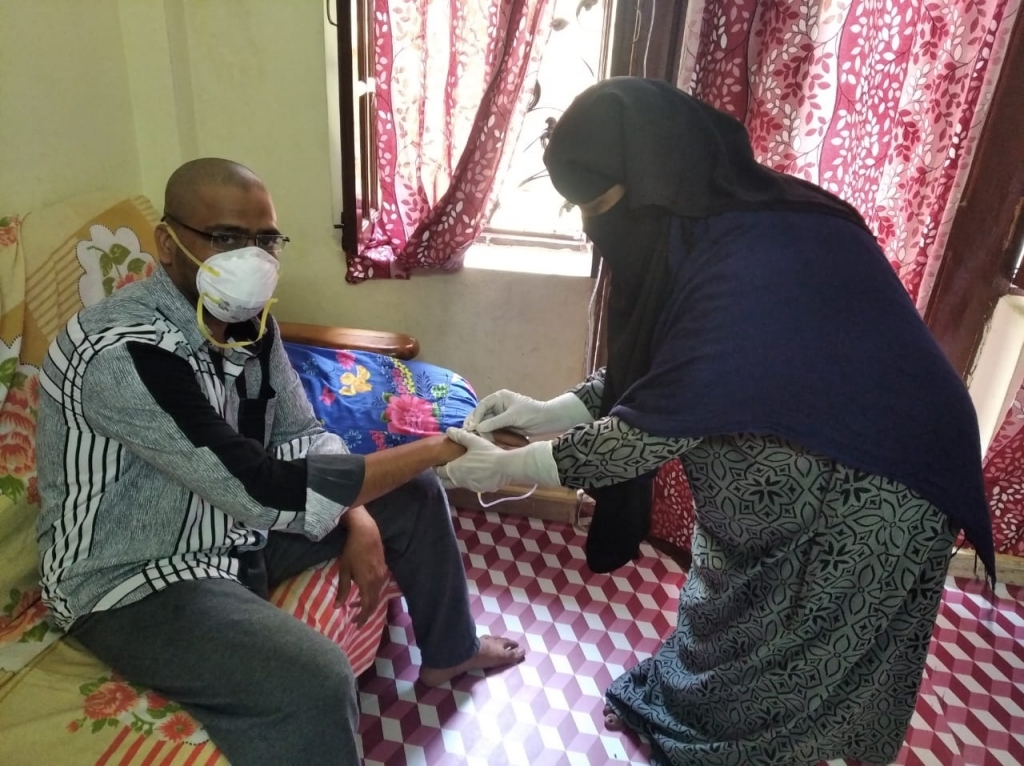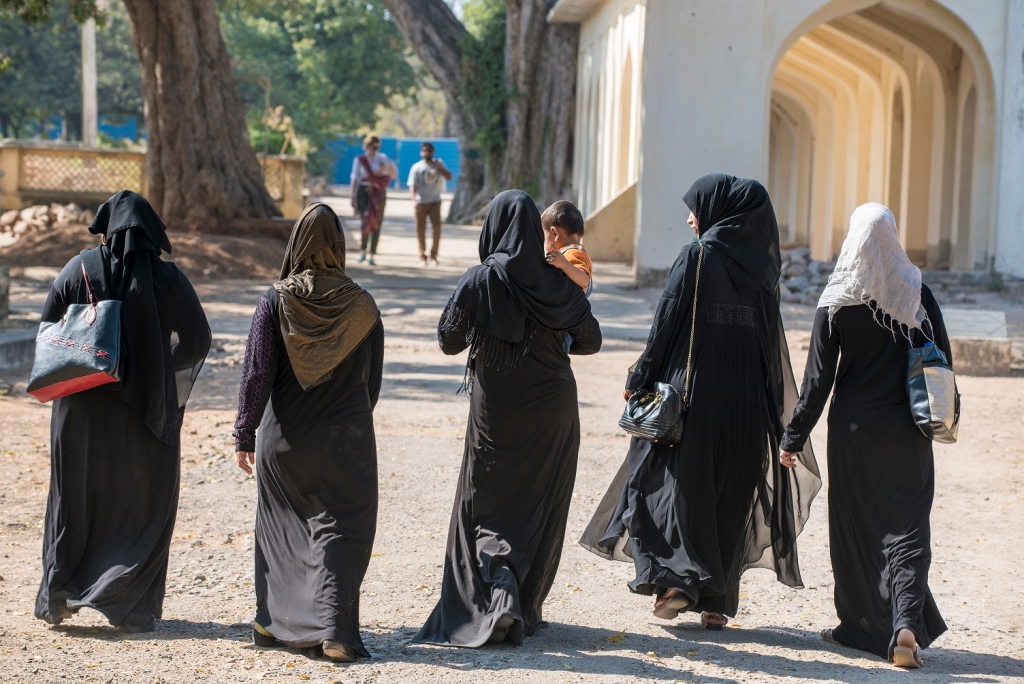INDIA :

Sameera was just 14 years old when she dropped out of school. Soon afterwards, her impoverished parents arranged her marriage, after which she stayed at home to cook and clean for her husband’s family, like all the other women in her small fishing community in Kerala’s Malappuram district.
When the Government of India’s Nai Manzil – New Horizons – program came calling, offering school-dropouts from minority communities a second chance to complete their education and learn a marketable skill, her husband let her join.
A year and a half later, Sameera, along with three other women from the program set up Bismil Tailoring, a home-based venture that took in sewing assignments from the community. “Our customers appreciated our work, and we were earning good money,” recalled Sameera.
However, barely a few months after they had started, a lockdown was imposed to contain the COVID-19 pandemic. Orders dried up, taking a heavy toll on the nascent enterprise.

The women’s earnings help their families weather the crisis
When we spoke to Sameera four months later, we were naturally surprised to hear an optimistic young voice at the other end of the line. Confidence bubbled out of her, and although not everyone in her unit was able to resume work, they had received several orders for masks, and she was sure that their tiny unit would bounce back as soon as the lockdown was lifted.
Her education and training, as well as her exposure to the outside world, had instilled in her a new self-assurance that she could make a go of things, despite the temporary setback. This was bolstered by the fact that she was able to keep her small family afloat during the crisis, even though her fisherman husband had been unable to go out to sea since the pandemic started.
Sameera’s story is echoed in 32-year old Kausar Jahan, mother of three, who lives with nine other family members in the eastern city of Hyderabad. Although Kausar was just 17 years old when she got married and had to drop out of school. Nai Manzil’s training enabled her to get a job at a government hospital providing bed-side care to patients.
Today, while millions of lives and livelihoods have been severely impacted by the pandemic, Kauser is able to help support her family with the Rs 4,000 she still receives, even though her employers have asked her to stay at home until the worst is over. While this is just half her earlier salary, it has proved to be a lifeline for her 9-member household, more so since her electrician husband has been unable to get work during the crisis.
Kausar is now using her training to provide free health services to her community in the old city of Hyderabad, administering injections and checking blood pressure.
Both women look at the plight of others in their communities and shudder to think what would have become of their families had they not received Nai Manzil’s life-changing education and training.
And, it’s not just their families who have benefitted. Kausar is now using her training to provide free health services to her community in the old city of Hyderabad, administering injections, checking blood pressure, interpreting test reports, and nudging those who are seriously unwell to visit a doctor.
Sameera too is deeply involved in promoting the welfare of her small fishing community in Kerala. She is also supporting the wider population by helping with the common kitchen that has been set up to feed out-of-work migrants and other poor individuals affected by the pandemic.

Education, skills and exposure brings life-changing empowerment
Having seen her peers transform into co-founders of their tailoring unit – many of whom had never stepped out of their homes before or were the regular victims of domestic abuse – Sameera firmly believes that education, skills and exposure can herald life-changing empowerment, enabling the women to blossom and bring out their full potential.
While Sameera plans to study further and become a better entrepreneur, she wants the other women to grow along with her. Aware that not all her peers enjoy the same level of family support that she is fortunate to have received, she believes that religious leaders – who wield great influence within her community – can be a powerful force for change. In fact, it was these religious leaders who inaugurated the classes she attended.
More than half of Nai Manzil’s beneficiaries are women, with Muslim women constituting the majority. The first batch of beneficiaries completed their training in 2017, after which many have moved on to salaried jobs or self-employment. So far, more than 50,700 minority women have benefited from the educational and skilling provided by the program.

India’s Ministry of Minority Affairs is now hard at work to reduce the impact of the pandemic on minority communities across the country by expanding their opportunities for education and employment.
Over the last five years we have repeatedly witnessed the game changing nature of the Nai Manzil program. Given the huge demand for platforms that integrate education and skilling, the program marks the start of something truly transformational for minority communities across the country.
The World Bank is supporting the Nai Manzil program run by India’s Ministry of Minority Affairs, with a loan of $50 million. The program provides school dropouts from minority communities in 26 states and 3 union territories with six months of education and three months of skills training, followed by a further six months of support to help them establish themselves.
source: http://www.blogs.worldbank.org / World Bank Blogs / Home> Covid 19 / by Marguerite Clarke & Pradyumna Bhattacharjee / August 21st, 2020








